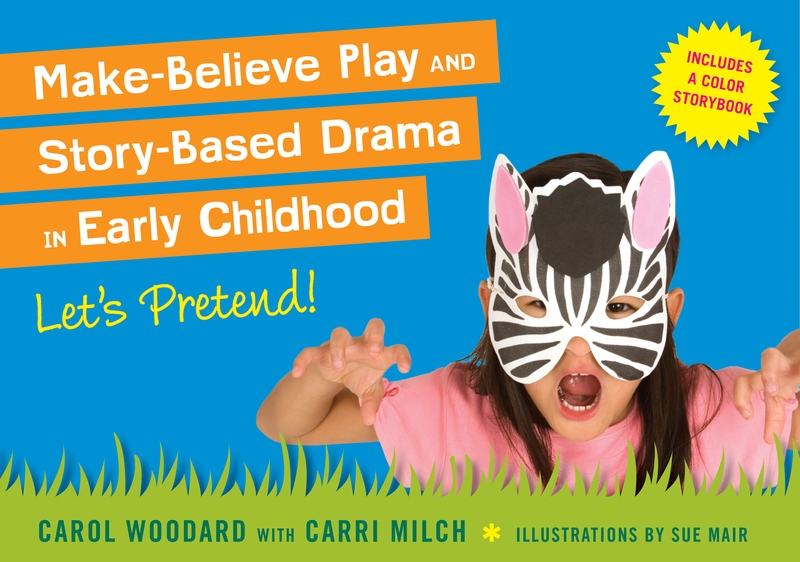Encouraging imaginative play in the classroom is an effective way to teach young children how to think creatively and interact socially – vital parts of their cognitive, social, and emotional development.
In this interview, educators Carol Woodard and Carri Milch introduce their new book, Make-Believe Play and Story-Based Drama in Early Childhood, which presents engaging and practical ways to use drama to enable young children to develop creative thinking and literacy skills while planning together, making decisions, giving and receiving feedback and working toward a common goal. Download a sample activity »
What made you go into education, and how did the book come about?
We have always enjoyed working with young children and are continually intrigued by their development and innovative techniques that support learning. Over the years, we have gained experience by teaching in public, private, and demonstration schools, at the college level here and overseas, and by writing and consulting for schools, agencies, and business. More recently, however, we have been disturbed by the teacher directed instruction and scripted materials being introduced in early childhood classrooms, and decided to try to do something about it by focusing on pretend play which does not always receive the attention it deserves.
Why is engaging children in drama and pretend play such an effective way of supporting their development?
Pretending has an important role in early childhood development. Through make-believe play and story-dramatization, children expand their thinking by using imagination to connect reality (what is) with a variety of stimulating alternate possibilities (what could be). In this process, the child develops cognitively, socially, emotionally, and physically especially when interacting with more knowledgeable adults and peers in a safe and supportive environment. The young child is also naturally drawn to pretending and finds it an engaging and delightful adventure.
What skills does dramatic play help children acquire?
Dramatic play is a type of pretending in which young children assume pretend roles within a theme like the grocery store, and improvise and control their own actions and conversations. Such play provides countless opportunities to develop skills such as critical thinking, prediction, problem-solving, self-discipline, cooperation, self-confidence, and empathy towards others, while also advancing language and literacy.
How does the book reflect your general philosophy about education?
We firmly believe that young children learn by doing and being involved in actual experiences which they help design, develop, and guide, and parents need to understand how children learn and be encouraged to become partners in the undertaking. We also feel that learning should be an interesting, challenging, and satisfying experience that contributes to a child’s overall development and a teacher’s professional fulfillment.
Can you talk about the storybook component in the book and why was it important to include this?
Dramatizing a story is still another type of pretending in which young children need to thoroughly know a story in order to act it out. For this reason, we suggest a three step approach to story learning which includes picture reading a storybook with the children. Realizing that teachers can be hesitant about beginning to use story dramatization, we wanted to provide a complete package which would introduce dramatizing and provide a storybook especially designed for this purpose. Our storybook is quite lovely and well suited to dramatization as it combines action and suspense with simple, colorful illustrations which are easy to follow and later improvise. Such a package offers children and teachers the ease and confidence to become involved in this rewarding experience.
What do you hope teachers and others working with young children will take away from this book?
We hope the book will enable teachers to skillfully integrate dramatic play, everyday drama activities, and story dramatization in their programs and help children learn by doing while building a sound foundation for future success in school.
Copyright © Jessica Kingsley Publishers 2012.
